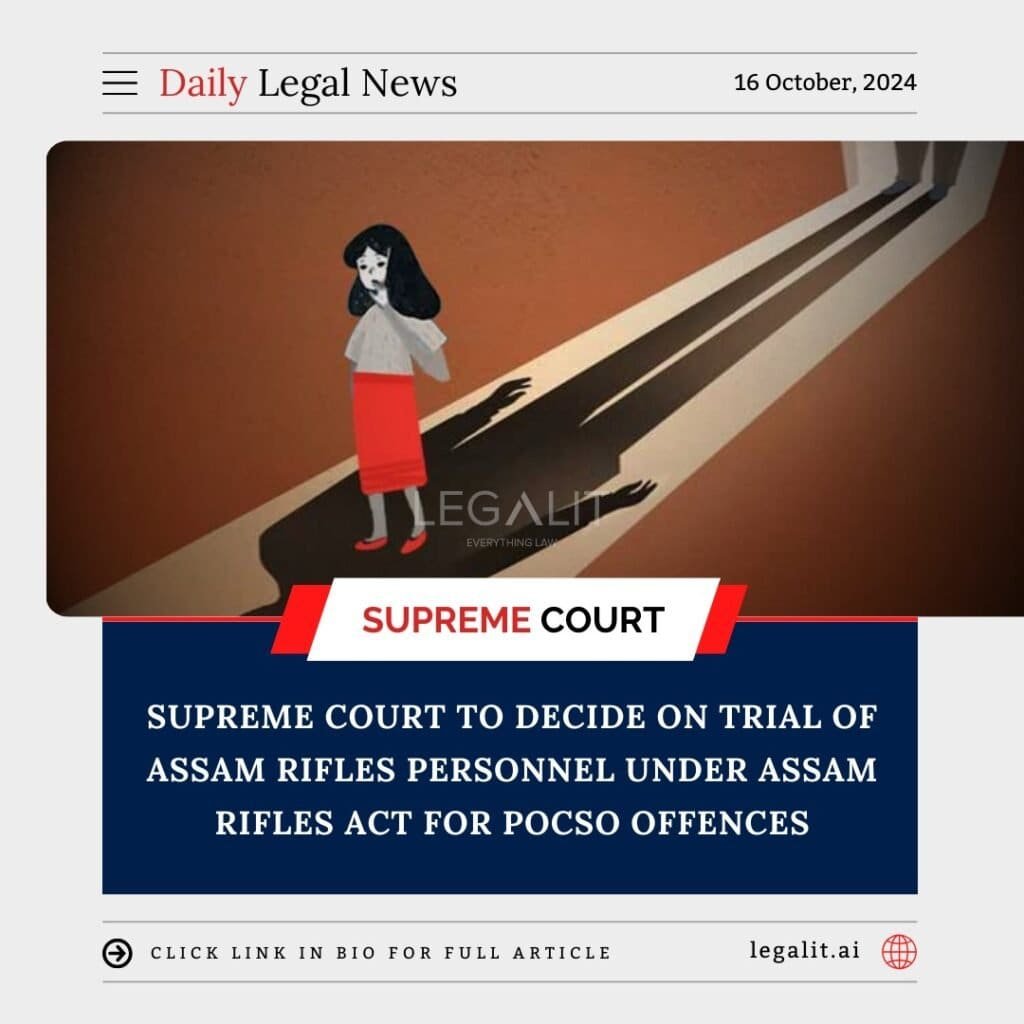
The Supreme Court of India is set to determine whether personnel from the Assam Rifles can be tried under the Assam Rifles Act in cases involving offences under the Protection of Children from Sexual Offences (POCSO) Act. This legal question arises from the complexities surrounding military jurisdiction and civil law, particularly when it comes to serious allegations like sexual offences against minors.
Background of the Case:
The issue came to the forefront when a case was filed against certain Assam Rifles personnel, accusing them of violating the provisions of the POCSO Act. The Assam Rifles, being a paramilitary force, operates under specific military laws, and there are questions about whether their personnel should be subject to civil laws, such as POCSO, which are designed to protect children from sexual abuse.
Legal Framework:
The Assam Rifles Act provides legal frameworks for the discipline and conduct of personnel, while the POCSO Act aims to protect children from sexual offences. The intersecting nature of these laws raises critical questions regarding jurisdiction: whether the Assam Rifles personnel should be tried under the Assam Rifles Act, which could afford them protections specific to military personnel, or under the POCSO Act, which mandates strict action against offenders.
Supreme Court’s Role:
The Supreme Court’s ruling on this matter will be pivotal, as it will set a precedent for how military personnel are tried for civil offences. The Court’s decision could impact the legal protections available to children in cases involving military personnel and the interpretation of jurisdictional boundaries between military and civilian law.
Conclusion:
The upcoming Supreme Court ruling will not only clarify the legal standing of Assam Rifles personnel in relation to POCSO offences but will also have broader implications for military and civil law interactions in India. The decision is eagerly awaited by legal experts, child protection advocates, and military personnel alike.